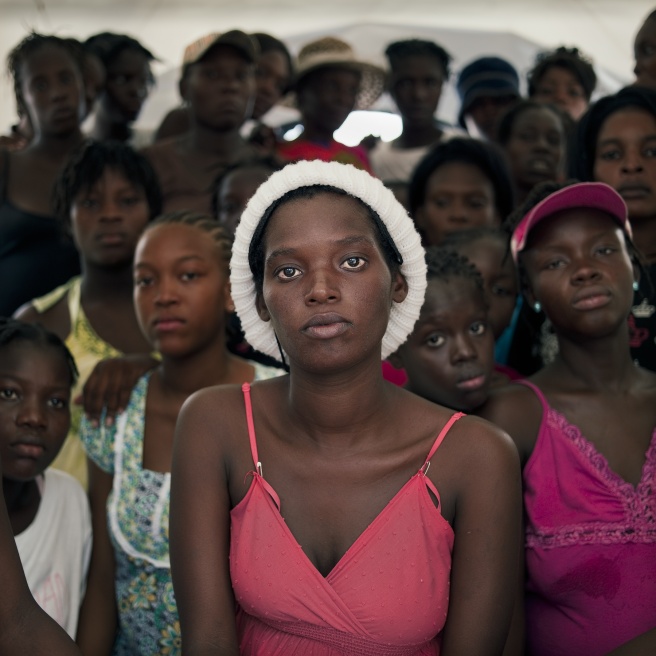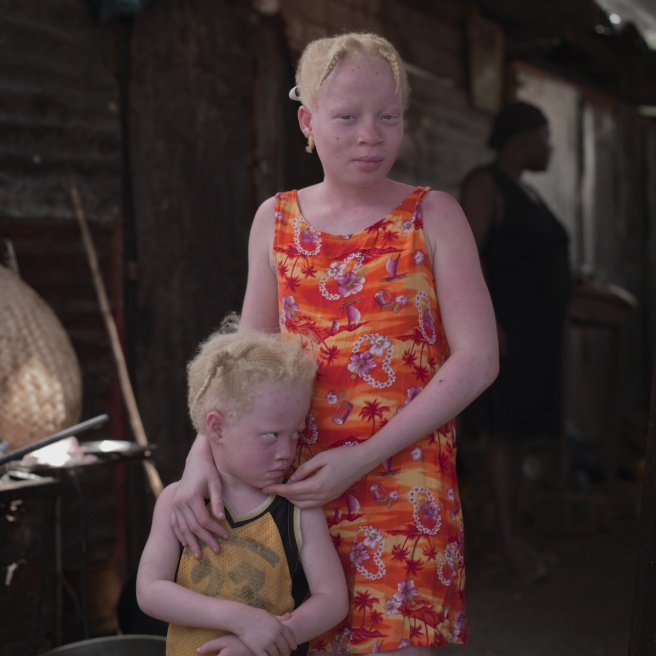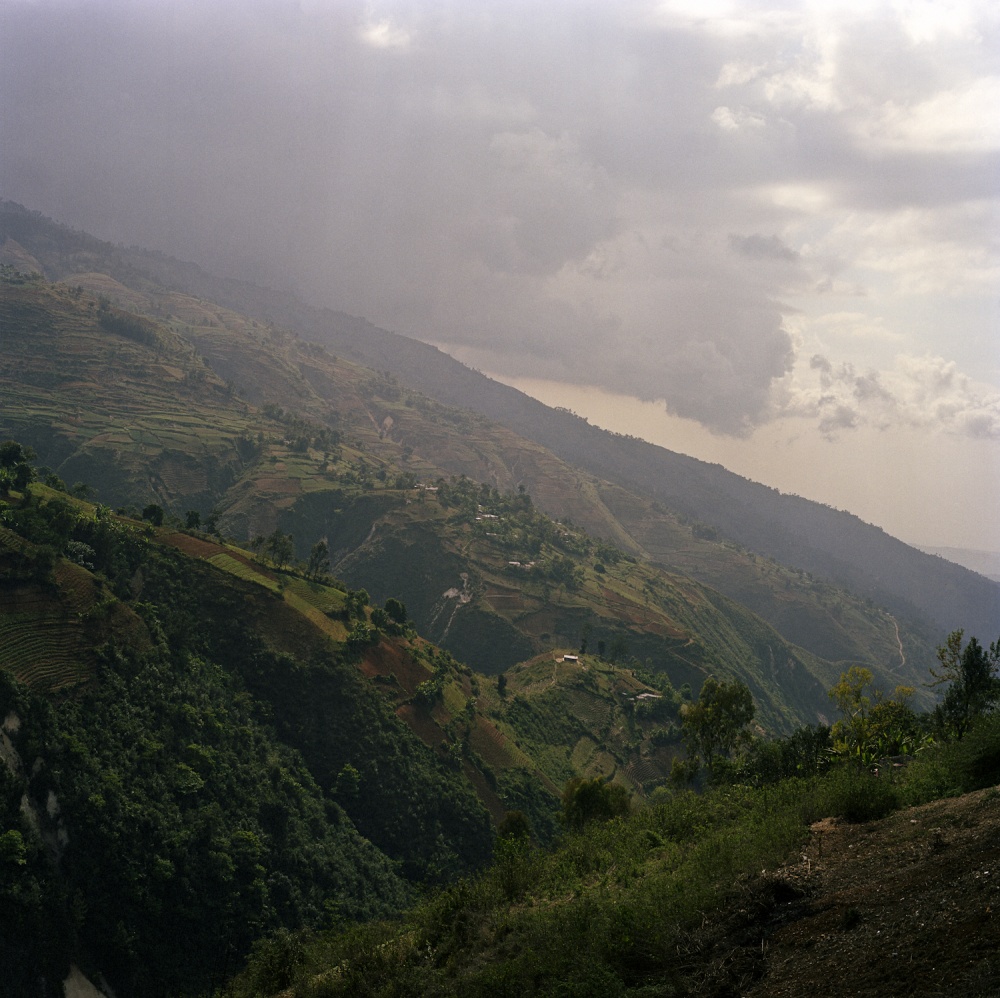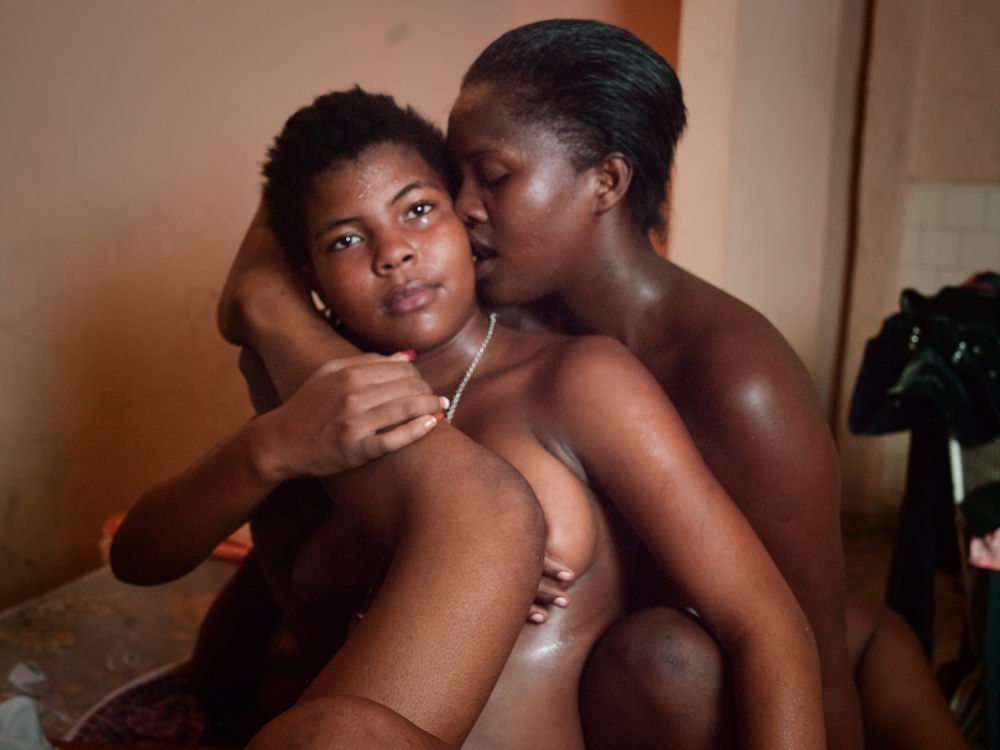Life in Haiti passes like the tides. There is the powerful pull in, and the equally strong pull out. Lives here are carried along in the same way, a daily beginning, an unlikely, often untimely end. Into the austere, eerie void created by the Haitian earthquake stepped women. They have acted as shields, fierce protectors of those made most vulnerable by the disaster. They have sacraficed all they had to do so, and their strength has provided the vital foundation which the country now rebuilds.
Survival:
This has been an odyssey for Haitians; a journey which illuminates who they truly are as a people. It has been a vast, steep climb out of a pit - and yet once again among the living, the treachery of everyday existence looms large. The women, in particular, engage in a relentless struggle to remain safe, amid prostitution and rape which ravages the island. Those who fall prey feel as if they have fallen backwards into the void.
Coming of Age:
A young woman and her brother (I will call her Jacqueline and Thomas) came to Port-au-Prince from the south western mountains of Haiti, three months after the January 2010 earthquake. They were originally farmers, growing mangos and selling them to feed their family of eight. When the earthquake struck, there was an immediate economic impact to the family. No longer were the parents able to afford to keep all of their children. In hopes of finding work, Thomas and Jacqueline ventured forth to find reconstruction jobs.
Many non-governmental organizations (NGOs), such as C.A.R.E., US AID and the International Red Cross (IRC) were distributing food to stave off starvation. Arriving in downtown Port-au-Prince, Jacqueline received IRC food distribution cards and was able to feed herself and Thomas while they looked for shelter and work. After two weeks of searching, they found a room for rent in the Babiole section of PAP. After a month, It was getting harder and harder to find food, many NGOs have scaled back distribution in hopes of a more sustainable solution from the local government. With rent coming due, lack of food and no prospects for jobs, Thomas made a decision.
There is a fierce struggle for power Jacqueline faces. The need for importance that gives her fight meaning. And the poignant fall that accompanies her failure in the quest. The quake burried half the island. At the very same time it exposed humans in crisis. The disaster brought out bare facts, how some are forced into desperate futile paths. Thomas pimps Jacqueline. He sees it as the only means of making money. Sadly, he has convinced her of the same; blind vision.
The Women:
Into that void stepped Haitian women. And just as sudden as the earthquake itself, they have been thrust into the forefront, taking on responsibilities never before imagined. They were first given legitimacy by virtue of those who came to the island to help, NGOs, International aid groups have all turned to women to help solve the country's most immediate needs. They have taken on leadership roles inside the tent camps, on the streets, that are virtually unprecedented.
Life on the island has turned topsy-turvy. Women, now the money makers, have found sources of small capital, they have generated ideas which have taken root, road side stands, grass roots manufacturing...
... These are the seeds from which Haiti now slowly comes back to life.
The lives of several women, the life they confront on a daily basis, and the insanelypowerful forces at play which make their journey incredibly daunting.
There is Yolanda (21-yrs.), resident of on of Port-au-Prince's more notorious IDP camps. Rape inside her camp is an everyday occurrence; making her and others sitting ducks for any one who has a mind to use them.
Yolanda has become what can best be called a one woman protectorate, a human shield, guard dog, for others inside her camp. She holds regular meetings for girls who have been victims, as well as for those that have yet to fall prey, creating a sisterhood that has held fast. As the numbers of followers have grown, so has Yolanda's voice. She is listened to, feared, and held in regard.
There is Sabine. a resident of the JP/HRO Petionville tent camp, run by Sean Penn's organization. Sabine is a rarity. She has begun a from-the-ground-up manufacturing plant, teaching women how to create and market clothing. Their lines are as varied as those on Fifth Avenue: shorts and skirts, accessories and purses. Sabine has provided answers to both immediate needs, the profits allow them to eat, to buy essentials. In addition she has unearthed deeper desires among the women, the need to see themselves as essential.
Then there is Joanne (23-yrs.). The earthquake threw her into prostitution, as it did for thousands of Haitian women. A realist, a determined survivor and a misguided mentor, she has since begun a school of prostitution. She justifies this in several ways: working for her is far better than working for a man, she says. She protects her girls in ways that keep them safe, even cared for. She makes sure she knows where every girl is at any given time. She has cell numbers, contacts: Joanne has crafted a net, a towrope, so to speak that has sealed these women's fates together. Joanne has banked on the idea that there are safety in numbers. She of course allows herself the doubts that creep inside. All she sees, the vicious choices, the ways she can make it bearable and the claws she needs to find a path toward survival are excruciatingly beautiful.
It should become obvious that time is what Haitians seek to buy. Each and every day they wake with that idea in mind. More time. How to find it, how to use it, how to rely on it.
The staggering events that beset Haiti has given birth to a people who are at once extraordinary, utterly hard-nosed, and possessed with a need to find purpose in a place that seemingly offers none. This is about those who wake with the tides, who fight to stay afloat, in spite of the grinding pull of the undertow.





























